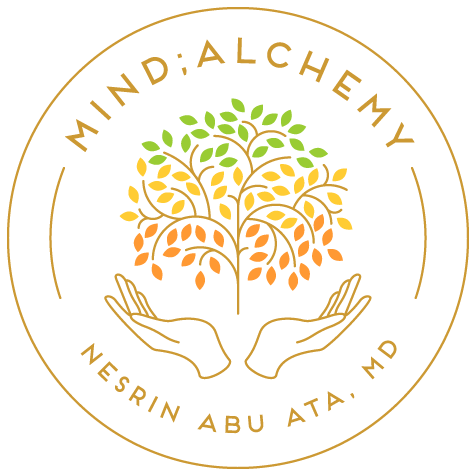“I have a chemical imbalance and that’s why I am seeing you to find the right medication to get chemicals balanced in my brain.”
I often hear the above statement from patients who seek consultation with me for their mental health. In 1960s, psychiatry researchers developed the catecholamine or biogenic amino hypothesis of mood disorder. This led to the concept that an imbalance in neurotransmitters resulted in abnormal moods. This has become how media portrays mental health and treatment. While there is still a role for neurotransmitters, their role is to be understood in the context of the entire brain metabolism. The microbiome and inflammation (among other things like oxidative stress and mitochrondrial function) all relate to understanding the brain metabolism mechanics.
Our bodies are a highly complex ecosystem including 39 trillion bacteria, mostly good, inside and on our bodies’ surface. The majority of the bacteria within our bodies (known as the microbiome) work in complex ways to promote and maintain our health by interacting with cells and organs in various ways. Some gut bacteria have endocrine functions and make oxytocin, serotonin and dopamine. These chemicals activate certain signals in the brain and thus affect our mood (G. Clarke et al). Another example is the Lactobacillus plantarum that produces metabolites that stimulate an anti-inflammatory response by intestinal stem cells which would help with healing (A. F. Athiyyah et al.) .
It all starts at birth
The microbiome starts at birth after passing through the birth canal, and is shaped by breast milk first and then diet, environment and human contact throughout our lives. I often ask my patients if they were delivered by cesarean section and if they were breastfed or bottle fed. This is why it is also important to know if a patient had a gastric bypass as their microbiome has been changed following the surgery.
A majority of the immune system is located in the gut. The immune system decides which bacteria and foods are “safe and good”, and which ones need to be defended against by producing certain chemicals that cause inflammatory signals. These signals travel to the brain which can eventually lead to depression and other mental health problems.
Chronic inflammation does not give the body time to heal which results in continued damage to the internal lining of the intestines. As a result, inflammatory signals and bacteria move to other parts of the body and negatively impact it. All this disturbs the microbiome (also known as gut dysbiosis) which in turn impacts the brain. This is why I ask patients what kind of food they eat, how they find they feel after eating certain foods and whether they tried to eliminate certain foods from their diet.
Other causes for gut dysbiosis are broad spectrum antibiotic use, chronic stress, a poor diet and the modern environment being too clean.
So, I tell my patients there is an increase amount of evidence that what we eat affects how we feel, and that every choice we make relative to our diet matters. Keeping a diet journal is a good start to gut and brain health recovery.
References
The Emerging Field of Nutritional Mental Health: Inflammation, the Microbiome, Oxidative Stress, and Mitochondrial Function
Berk M, LJ Jacka, FN, Oneil A, Passo JA, Moylau S, Byrne ML 2013. So Depression isan Inflammation Disease, But Where Does the Inflammation Come From? British. Medical Journal of Medicine
Eat to Beat Disease, William Li, MD
Gardner and Bolles. 2005. “Beyond the Serotonin Hypothesis.”
G Clarke et Al. “Minireview: gut microbiota: the neglected endocrine organ.” Molecular endrocrnlogy 28, no. 8 (2014):1221-1238.
A.F. Athiyyah et al., “Lactobacillus Platarum IS-10506 Activates intestinal Stem Cells in a Rodent Model,” Beneficial Microbes (May 4, 2018):1-6.
